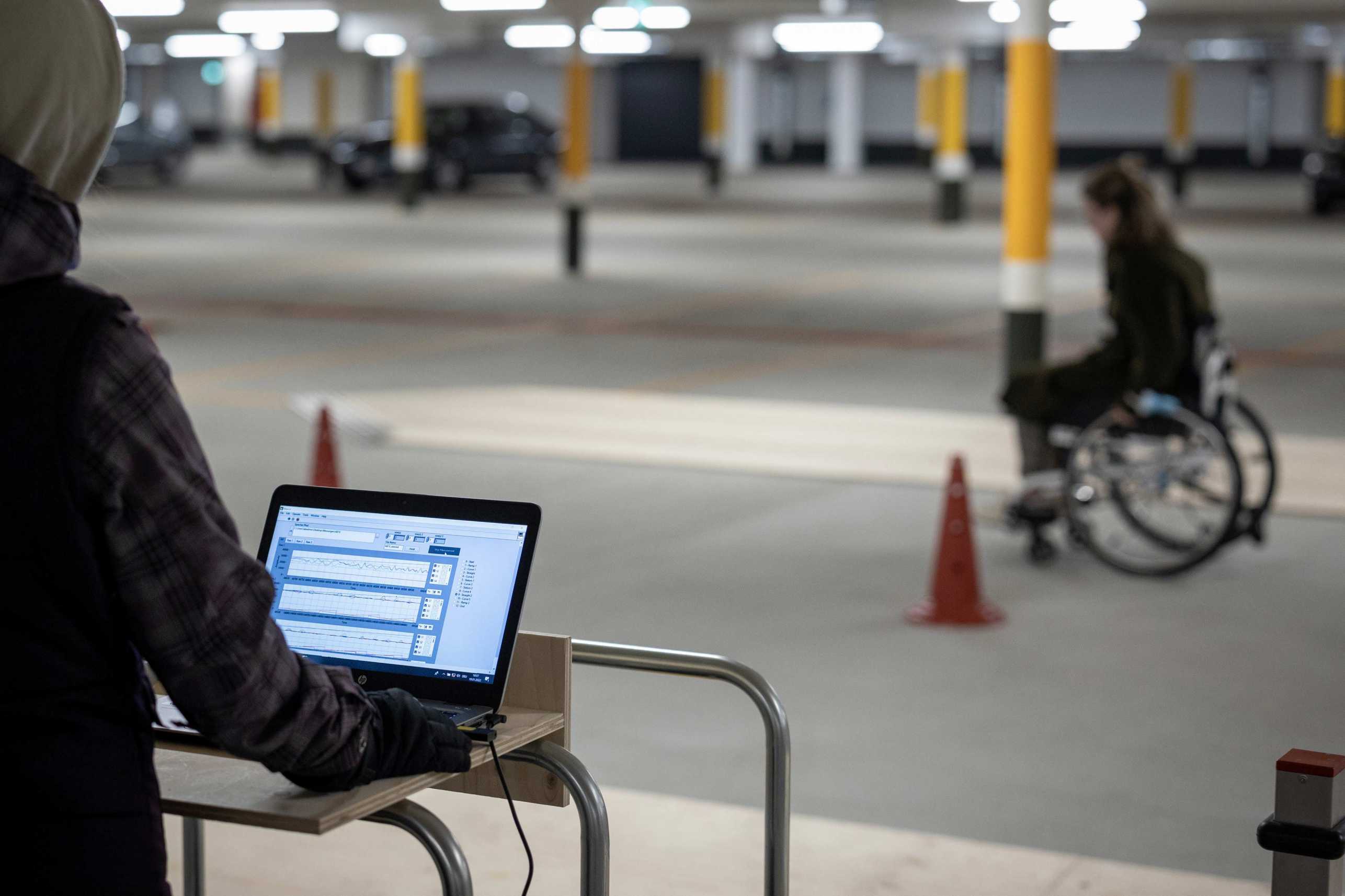Research grant awarded to promote monitoring technologies for clinical decision-making in spinal cord injury (SCI)
The ETH RESC – Swiss Paraplegic Foundation research programme funded two promising projects aimed at developing novel sensing technology and artificial intelligence methods for outpatient monitoring with direct application for individuals with a spinal cord injury (SCI).
The research programme aims to drastically change outpatient medical care for people with SCI, from a medical guideline-driven standardised follow-up routine to an individualised, risk-stratified interaction, including the needs and expectations of the affected persons. Funding for this programme is supported by RESC’s strategic partner Swiss Paraplegic Foundation within the framework of external page ETH’s Rehab Initiative.
An artificial intelligence (AI)-based telemonitoring tool to measure pain in spinal cord injury patients in at-home settings
Chronic pain has long been known as one of the major health concerns after SCI, influencing psychological health, functioning and quality of life. However, its treatment is complex and is challenged by a multifaceted interplay among biological, psychological and social factors. Common pain treatments present significant medical and technological limitations, reflected in unspecific drug usage and a very high number of medical examinations, both of which represent a cost burden for the healthcare system. Furthermore, the overall efficacy of pain management is often limited, leaving the patient in poor living conditions.
Designing individualised targeted therapies requires understanding each subject’s multidimensional pain experience, taking into consideration both physical and emotional aspects. At present, self-reported questionnaires are the most widely accepted method for measuring pain, although these assessments suffer from subjective differences in perception and reporting. Healthcare systems promote the identification of biomarkers and reliable clinical trial endpoints for pain to facilitate diagnosis, track pain progression, assess new treatments and provide tailored therapeutic responses.
Professor Stanisa Raspopovic states the following about the project’s goals: “The project aims to provide a telemonitoring system to quantify and qualify the impact of multidimensional pain markers on the subjective pain experience of SCI patients, leveraging the use of advanced AI techniques. Thanks to the combination of wearable technology, collecting biometric data and psychological assessments, our AI-based approach has the potential to improve the overall quality of life and productivity of SCI individuals with chronic pain, reduce the number of visits to the clinic and healthcare costs by providing an added support to doctors during the diagnosis and treatment, and improve the efficacy of pain management by promoting individualised therapies.”
Project timeline: Q1/2023 – Q2/2024
A lightweight force measurement wheel system for assessing wheelchair activity in daily life
For manual wheelchair users, an active lifestyle critically reduces the risk of cardiovascular diseases, although over-using the shoulders can lead to pain and injuries. Physical activity therefore requires appropriate propulsion techniques and training to sustainably improve quality of life. Measurement wheels that can track activity levels and the strain on the arms and shoulders of wheelchair users are therefore essential to promote healthy physical activity and prevent shoulder injuries. However, existing solutions – namely the SmartWheel and Optipush systems – are heavy and bulky, suffer from a failed translation out of confined laboratories into daily life, and above all are currently no longer available or are reaching end-of-life.
In this project, we will develop a new type of wheelchair wheel to measure and record the forces required for wheelchair propulsion. An innovative sensor layout first implemented in a measurement wheel prototype developed at the Laboratory for Movement Biomechanics at ETH Zurich allows us to focus on a lightweight and mobile design that is suitable for use in daily life. This concept opens doors to a range of new applications: in science, out-of-lab measurements unlock a new thread of research towards understanding the shoulder-loading patterns during daily living activities and over extended periods of time. In clinics, direct access to information on wheelchair skills and propulsion techniques allows tracking and improving training and rehabilitation progress in outpatients. Finally, in sports, power output measurements enable performance diagnostics on the court and during training sessions.
We therefore aim to develop and validate a novel, instrumented force measurement wheel focusing on a lightweight and compact design suitable for everyday use. In a subsequent pilot study led by Dr Diego Paez-Granados, we will use the wheels to track push-rim forces in daily life to support classifying wheelchair users’ activities: “In this project, we will bring to life a novel in-wheel sensor for monitoring wheelchair users in their daily life through an unobtrusive embedded form of wearable technology for manual wheelchairs. This will allow us to advance outpatient monitoring in community settings for secondary health conditions such as shoulder problems, cardiovascular activity and pressure injury onsets. This compact sensor can help us to track daily activities and effort, and achieve a better movement quality analysis, analogous to using ground reaction forces for gait pattern analysis.”
In a collaboration between the Laboratory for Movement Biomechanics and the Spinal Cord Injury Artificial Intelligence Lab, this project fosters complementing sets of expertise in developing mobile sensor systems and monitoring activities of outpatients living with SCI towards ultimately enabling the development of personalised prevention and training programmes.
Project timeline: Q1/2023 – Q1/2025
